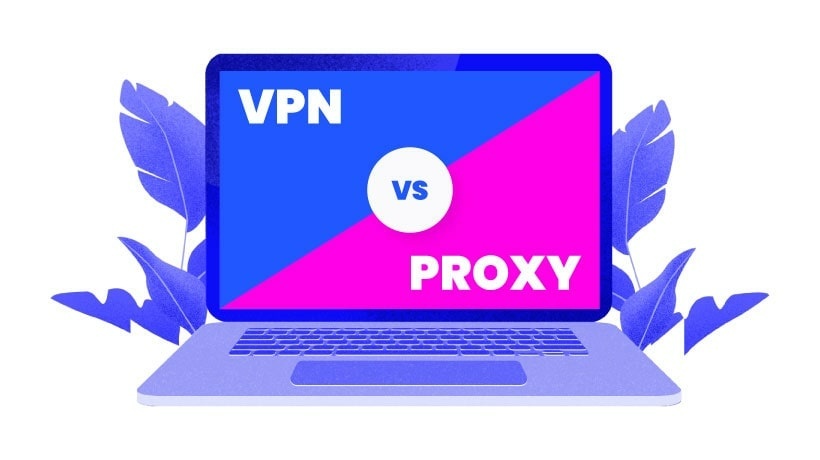A virtual private network (VPN) and a proxy are both technologies that can be used to protect your online privacy and security, but they work in different ways and have some key differences. Here is a breakdown of the main differences between VPNs and proxies

How they work: A VPN establishes a secure, encrypted connection between your device and a remote server. All of your internet traffic is routed through this connection, which makes it difficult for anyone to monitor or intercept your online activities. A proxy, on the other hand, acts as an intermediary between your device and the internet. It routes your traffic through a different IP address, which can help you to bypass certain restrictions or mask your real IP address.
-
Level of security: VPNs offer a higher level of security than proxies because they encrypt your traffic. This makes it much more difficult for anyone to intercept or track your online activities. Proxies, on the other hand, do not offer the same level of security because they do not encrypt your traffic.
-
Speed and performance: VPNs can potentially slow down your internet connection because they add an extra layer of encryption to your traffic. This can be especially noticeable when using a VPN to access content from a distant server. Proxies, on the other hand, do not add any additional encryption, so they generally have less of an impact on your internet speed.
-
Compatibility: VPNs are generally more versatile than proxies because they can be used with a wide range of devices and operating systems. Most VPNs have dedicated apps for popular platforms such as Windows, Mac, iOS, and Android, and they can also be configured manually on other devices. Proxies, on the other hand, may not be compatible with all devices and may require manual configuration.
-
Cost: The cost of using a VPN or proxy will depend on the specific service you choose. Some VPNs and proxies are free, while others charge a monthly or annual subscription fee. It's important to carefully research the options available and choose a reputable service that offers good value for money.
In summary, VPNs and proxies are both useful tools for protecting your online privacy and security, but they work in different ways and have different strengths and limitations. VPNs offer a higher level of security and are generally more versatile, but they can potentially slow down your internet connection. Proxies are faster but offer less security, and they may not be compatible with all devices.
